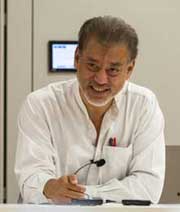US Policies Slowing World Economy — Global Issues

KUALA LUMPUR, Malaysia, February 2 (IPS) – Few policymakers have ever claimed responsibility for causing stagnation and recession. However, they always do, justifying their actions with some supposedly higher purpose.
Now, the higher aim is to control inflation as if it were the worst option for people today. Many economists are said to make up fairy tales that inflation causes economic declines that ordinary people do not know or understand.

Recent trends since mid-2022 are clear. Inflation is no longer accelerating, but slowing. And for most economists, only rising inflation is cause for concern.
Since then, annual inflation has been only slightly higher than official, but nonetheless the arbitrary 2% inflation target of most Western central banks.
At its peak, the brief surge in inflation, in the second quarter of last year, certainly reached “the highest (price) level since the early 1980s” due to the way it was measured.
After decades of ‘financialization’, the public and politicians unwittingly favor moneyed interest groups that want to minimize inflation to get the most out of their financial assets.
War and prices
Russia’s aggression towards Ukraine began in February last year, with retaliatory sanctions following it. Both have disrupted supplies, especially fuel and food. The spike in inflation in the four months following the Russian invasion was mainly due to the ‘supply shock’.
Price increases are triggered by war and retaliatory sanctions, especially for fuel, food and fertilizer. Although no longer accelerating, prices are still higher than a year ago.
To be sure, price pressures have increased along with other supply disruptions. In addition, demand is changing with the new Cold War against China, the Covid-19 pandemic and the ‘recovery’, as well as the tightening of credit in the last year.
There is little evidence of any major motivating factors anymore. There is no ‘wage-price spiral’ as prices have recently increased more than wages despite government efforts to ensure full employment since the 2008 global financial crisis.
Despite the difficulties caused by inflation, tens of millions of Americans are better off than before, for example, with 10 million jobs created in the past two years. Under Biden, wages for low-wage workers have risen faster than consumer prices.
Higher borrowing costs have also weakened workers everywhere. Such adverse consequences would be less likely if the public had a better understanding of recent price spikes, available policy options, and their consequences.
With the notable exception of the Bank of Japan, most other major central banks have played ‘catch up’ with the US Federal Reserve’s interest rate hikes. To be sure, inflation has fallen for a variety of reasons, most of which have nothing to do with them.
Delay
But higher borrowing costs have reduced spending, both for consumption and for investment. This has accelerated the worldwide recession after more than a decade of lackluster growth since the 2008 global financial crisis.
Previously ill-advised policies now limit what the government can do in response. With the Fed sharply raising interest rates last year, developing country central banks have tried, often in vain, to stem capital outflows to the US and other ‘safe havens’. interest rate.
After opening a capital account on foreign advice, the central banks of developing countries always raise interest rates higher, in the hope that more capital will flow in than out.
Interestingly, conservative US economists Milton Friedman and Ben Bernanke have pointed out that the Fed has exacerbated past US recessions by raising interest rates, rather than supporting businesses. business when they need it.
Four decades ago, rising service costs caused government debt crises in Latin America and Africa, pushing them into the ‘lost decade’. Policy conditions were then imposed by the International Monetary Fund and the World Bank for access to emergency loans.
Globalization is a double-edged sword
The policies of economic globalization at the turn of the century are being reversed dramatically, with devastating consequences for developing countries after they opened their economies to foreign trade and investment. outside.
The promotion of foreign indirect investment is increasingly damaging to foreign direct investment in ‘green fields’ aimed at building new economic capacities and capabilities.
The new Cold War is thought to involve more economic weapons, such as sanctions, than the previous Cold War. Trump and Japan ‘reshoring’ and ‘friend-shoring’ discriminate among investors, remaking ‘value’ or ‘supply chain’.
Arguably, the establishment of the World Trade Organization in 1995 was a milestone for multilateral trade liberalization, establishing a ‘one-size-fits-all’ approach for all. people, regardless of vehicle. More recently, Biden has continued to reverse Trump’s previous trade liberalization, even at the regional level.
The year 1995 also saw the strengthening of international intellectual property rights, restrictions on transfer and technological advancement. Recent ‘trade conflicts’ increasingly involve access to high technology, as is the case with Huawei, TSMC and Samsung, for example.
With direct tax rates falling almost worldwide, governments face more budgetary constraints. The past year has seen these diminished financial means massively shift toward military spending and strategic purposes, reducing resources for the purposes of development, sustainability, equity and humanitarian.
Against this backdrop, new international antagonisms conspire to turn this into a ‘perfect storm’ of economic stagnation and recession. Therefore, those fighting for international peace and cooperation can be our best hope against ‘new barbarism’.
IPS UN Office
Follow @IPSNewsUNBureau
Follow IPS News UN Office on Instagram
© Inter Press Service (2023) — All rights reservedOrigin: Inter Press Service




